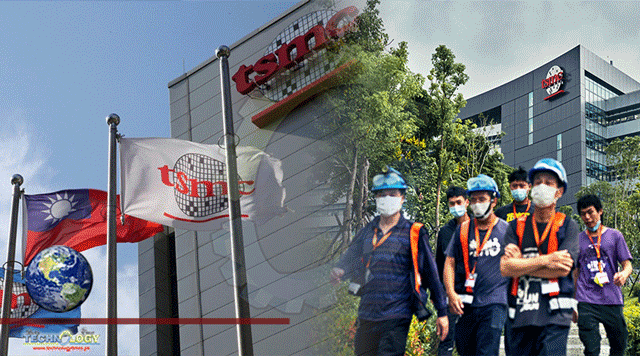Taiwan’s Ministry Denied Rumors That Taiwan Semiconductor Manufacturing Co. (TSMC) Plans To Shift Its Chip Production Capacity To China.

Taiwan’s Ministry Of Economic Affairs Has Denied Rumors That The Taiwan Semiconductor Manufacturing Company (TSMC) Plans To Shift Some Of Its Chip Manufacturing Capacity To China. The rumors surfaced earlier this week as some speculated that TSMC would shift to its facility in Nanjing, China, as it faces water and electricity shortages in Taiwan. This alleged shift, now denied by the Taiwanese government, would involve the capacity relocation of 12,000 wafers for mature chipmaking processes such as the 28nm chip node.
TSMC Refuses To Comment On Rumors Of Capacity Shift To China As Per Company Policy
According to the Taiwanese Ministry, TSMC has long-term, in-depth investment plans for Taiwan, and the company has no plans to relocate any of its existing chipmaking capacity to China due to power or water constraints. The island has been facing a historic drought this year as it anxiously awaits typhoons and a power outage in the Tainan sector disrupted TSMC’s operations earlier this month, with millions of dollars of loss expected as a result. The fab has also started to procure groundwater and water tankers to ensure its production is not affected by the drought.
The denial comes as Taiwanese officials clarified the matter directly from TSMC. In their statements, they also stressed that the fab’s investments in the latest chip manufacturing technologies are in Taiwan. TSMC is building a chip fabrication plant in the island’s Tainan sector, and this plant will build chips on the leading-edge 3nm process node. Risk production in the facility is slated for later this year and mass production for 2022.
They also stated that 90% of TSMC’s chip manufacturing capacity is located in Taiwan, and capacity expansion will further mature its chipmaking ecosystem. The Ministry is also planning to develop power and water infrastructure in advance, as it anticipates TSMC and the industry’s future needs. TSMC’s President, Mr. Wei Zhejia, also shared his take on the rumors and the ongoing operational constraints in a video conference. Following his company’s policy, the executive refused to comment on market rumors and directed the press to TSMC’s public statements on its capacity expansion plans.
He also reiterated company chief Dr. C.C. Wei’s statements made during TSMC’s earnings call earlier this month that the company has an extensive enterprise risk management system for managing water shortages. Therefore, the fab will not face production disruptions due to the ongoing drought.
In addition to a water shortage, TSMC is also currently facing excess demand from the automotive sector following the market recovery in China. The company has also canceled customer discounts for this year as it ramps up its production. Demand from the automotive sector coupled with an increase in demand from the consumer electronic sector has also raised concerns of an impending inventory correction in the chip sector. Should this occur, then an inventory buildup is likely to leave the fab with excess production capacity. However, while Dr. Wei did not rule out this possibility in his latest statements, he did share his belief that the current demand levels should persist until the second half of next year.
While TSMC is yet to increase chip prices, its smaller competitor and Taiwan’s second-largest contract chip manufacturer United Microelectronics is rumored to have done so. Unlike TSMC, UMC does not build chips using the latest manufacturing technologies, and whether the fab follows suit is uncertain. Any such hikes will involve future orders as TSMC has locked in its customers for the short term.
This news was originally published at WCCF Tech.